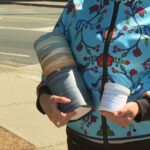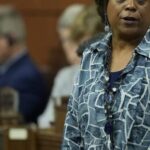In an unprecedented devaluation that has shocked property owners across British Columbia, a Chilliwack home’s assessed value has plummeted to just $2—the price of a cup of coffee—after being deemed at extreme risk of destruction from a potential landslide.
The property, located in the Panorama Ridge area of Chilliwack, belongs to Denis Trudel and his wife, who purchased it in 2012 for approximately $390,000. What was once their retirement sanctuary has transformed into a financial nightmare following a 2021 geotechnical assessment that identified severe slope instability issues on the mountainside where their home sits.
“It’s devastating,” Trudel told CO24 in an exclusive interview. “We’ve lost everything we worked for, and now we’re trapped in a home that’s officially worth less than a lottery ticket.”
The BC Assessment Authority’s decision to value the property at $2 reflects the catastrophic risk assessment, effectively rendering the property unmarketable and uninsurable. According to provincial records obtained by CO24 News, the land itself—previously valued at over $200,000—now carries a nominal value of just $1, with the house structure matching that figure.
The trouble began when neighboring properties experienced minor land movement, prompting the City of Chilliwack to commission a comprehensive geotechnical study of the area. The resulting report categorized the Trudels’ property, along with several others, as facing “very high” landslide risk, effectively condemning them without compensation.
“The city informed us by letter that our home was unsafe,” Trudel explained. “But unlike cases where the government expropriates land for public use, there’s no mechanism to compensate us for this loss.”
This situation highlights a growing concern across Canada as climate change accelerates extreme weather patterns, potentially destabilizing previously secure hillside developments. Insurance experts report that properties deemed high-risk for natural disasters are increasingly facing coverage exclusions or prohibitively expensive premiums.
“This case represents a regulatory gap in our disaster management framework,” explains Dr. Emma Richardson, Professor of Environmental Policy at the University of British Columbia. “When private property becomes unsafe due to natural hazards, owners often fall between jurisdictional cracks with no clear path to compensation.”
The Trudels now face impossible choices: continue living in a home officially deemed unsafe, abandon their property without financial recovery, or pursue costly legal action against municipal or provincial authorities. Their insurance coverage specifically excludes earth movement, leaving them without protection despite years of premium payments.
City of Chilliwack officials have expressed sympathy but maintain they cannot use taxpayer funds to purchase high-risk properties without provincial intervention. According to municipal records, approximately 15 other properties in the area face similar devaluations, though none quite as severe as the Trudels’.
The provincial government has initiated discussions about potential solutions for affected homeowners, including the possibility of a special disaster relief fund, but concrete action remains pending as jurisdictional questions persist between municipal, provincial, and federal authorities.
This case raises profound questions about property rights and government responsibility in an era of increasing climate uncertainty: When natural disasters threaten to destroy homes, who ultimately bears the financial burden—individual homeowners or society as a whole?

























